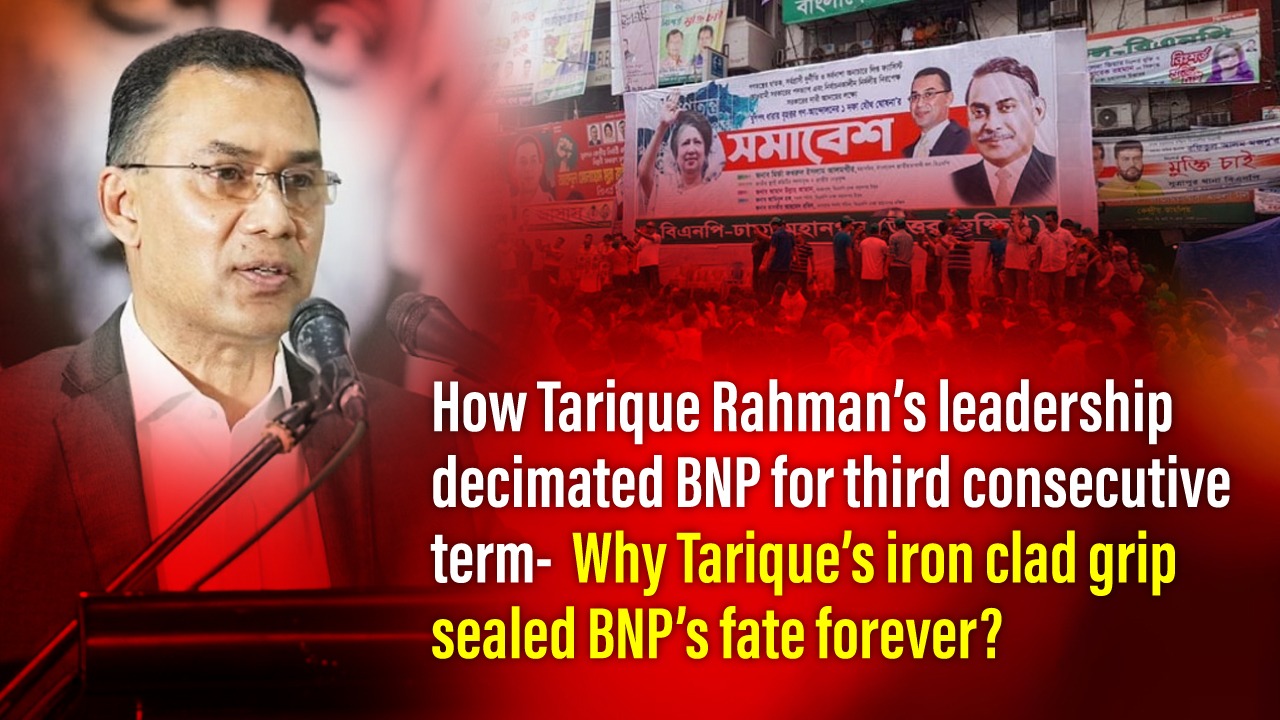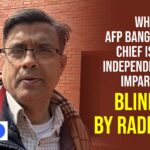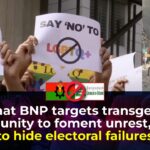The recent failure of BNP Jamaat combines to ensure zero turnout at the recently held polls add to the long list of debacles that engulfed the so-called opposition in Bangladesh for around one and a half decade since the polls held in 2008.
While BNP failed to garner any public support in four consecutive polls, political observes put the blame squarely on the top leader of the outfit Tarique Rahman, who has been running away from laws, leading a luxurious life in London.
Fled the country in September 2008 giving bond to stay away from politics, Tarique stood exposed and convicted for perpetrating a world of crimes when her mother ruled the country: extorting money from foreign companies in exchange of awarding public contracts, plundering public welfare fund, funding militancy, sheltering terrorists and colluding militants to physically liquidate liberal politicians.
Let’s take a look at how Tarique, isolated from public, staying 4000 miles away from London, contributed to the downfall of BNP, turning the once born in barrack party, as one of the most unpopular one.
2024 polls
“Thwart polls, decide the fate of the country on streets”, what Tarique exactly invented as his motto for his party cadres and loyalists as key to grab power that according to political observers acted as the staple for enforcement of blockade in the months leading up to polls.
Over 30 days of blockade by BNP Jamaat combine saw over hundreds of vehicles torched, over 20 lives perished and the country has suffered over billions due to such undemocratic acts.
While Tarique and his loyalists were confident that pursuant to such policies of destruction will ensure zero turnout but the reality appeared completely different as over fifty million people casted their ballots defying the blockade, another marker that politics of terror and violence never get accepted by people rather only pushed Tarique’s party in further isolation.
Disrupting the academic activism of forty million students has been another key tool for the BNP Jamaat combine as education institutions were attacked and buses carrying university students were also torched and vandalised.
Realising a strong sense of aversion among students, who constitutes a large section of voters, BNP opted for violence on students to make them stay away from polls.
In his own admission, Mirza Fakhrul Islam Alamgir admitted that BNP has failed completely to garner support from youths, a testimony that analysts believe led the party to unleash violence on students to keep them away from politics a move that backfired.
Destabilising campuses and holding hostage academic lives of 40 million students are key marker for BNP to keep the students away from politics.
Another key feature of Tarique led movement was threats to assassinate the Prime Minister from public rallies with call to restaging 1975 style massacre that saw 19 family members of the father of the nation assassinated and 21st August style grenade attack on then opposition leader Sheikh Hasina in 2004.
2018 polls
It is not only about arson or blockade to derail a polls that come out of Tarique’s playbook. Rather targeting massive unrest on education campuses and targeted assassination of top leadership within different allies and then pass the blame on Awami League are another plot that Tarique brought in display in 2018 polls, to cover up debilitating organizational weakness in polls.
As Tarique led BNP from London in that poll and the party offered candidates for the election, he made a fortune by making quick bucks through extorting aspirants for issuing nominations. Even a large number of popular BNP leaders eying party tickets held demonstrations in front of the party office and vented anger on Tarique calling him a “swindler”.
According to media reports, Tarique tasked a group of party cadres to physically liquidate Dr Kamal Hossain who led the opposition coalition figure and then put the blame on Awami League but went in vain.
While at the outset, Tarique aware of his sullied image before national and global community, allowed his party to accept the leadership of an octogenarian lawyer, days ahead of polls, BNP leaders had become vocal about Kamal taking over the leadership to destroy his leadership.
However, sensing imminent defeat, Tarique asked party men quit race just hours before the polls ends and launch a disinformation campaign to discredit the polls.
2014 polls
“The time has come for all of us to prevent and boycott the Jan 5 polls”, what Tarique directed to the party cadres ahead of the 10th parliamentary polls held in 2014, a template to grab power without participation of voters.
Between 2013 and 2015, arson attacks saw over 100 voters were burnt alive and thousands injured who are still bearing the burnt and demanding trial of BNP Jamaat arsonists. Moreover, BNP, with principal ally Jamaat, also attacked minorities in 32 districts: burning down worship places and houses among others.
On the other hand, a series of blockade till 2015 also saw the country lost billions and millions were pumped in for lobbying to draw foreign support to justify arson attacks and undemocratic demand for thwarting polls.
Instead of wooing voters for battle of ballots, violent schemes like cementing ties with Jamaat, resorting to targeted attacks on voters like firebombing of buses and trains, killing of law enforcers, attack on minorities, enforcing blockade were employed to derail polls and usurp power, all were denied outright by people.
Even in 2015, education institutions were targeted at the behest of Tarique to disrupt academic activities as media reports suggest BNP leaders were tasked with engineering clashes over occupying Dhaka University residential halls. ‘A few deaths’ during such head-on confrontations could destabilise the government, reads media reports quoting BNP leaders.





